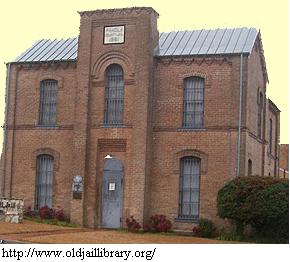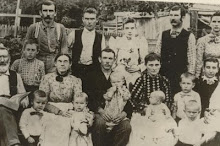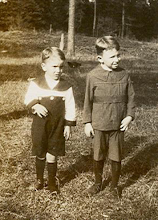January 1842 - THE FINAL JOURNAL Holland’s Plantation
The parents of Spearman Holland were Kemp Holland and Judith Sanderson. The Holland family Bible reflects that Spearman was born March 18, 1801, in Virginia and died after the Civil War in 1872. He was born in Virginia and lived in Tennessee, where he was a member of the State Legislature during the period when Sam Houston was Governor. He later moved to Mississippi and from there, in January, 1842, to Texas. He brought with him 43 slaves, an overseer, two laborers, his wife, Nancy, three sons: Spearman, Jr., Devereux, and James Kemp (a State Representative). Devereux, the middle son, was married and had one child by 1850.
In this new land after making his final journey, he established Holland’s Plantation deep in the Piney Woods of East Texas. As he made a new life for his family and a better life for his slaves, he continued with his political ambition. He was considered a fair man, what some called a civil servant. For his compassion toward the slaves, he would leave a legacy of unbelievable wealth. The community grew and became well-known as Holland Quarters (a community of African Americans).
THE SOUTHWEST PASSAGE Alabama-Georgia trail
The Journey started on the East Coast and ended on the Gulf Coast, through the Alabama Georgia trail. Although this was not the first time Master Spearman Holland had traveled this path, it would be his final trip.
Master Holland would stop along the trail to rest for days, weeks or even months. Shanties (shacks or houses) were built and left standing for the next ones who passed this way, striving to see the new land.
Slave owners would buy or trade slaves from nearby States and Territories.
Families were reunited, people died, babies were born, families were split up, and at times there were Jumpings of the Broom (marriages), having a sort of understanding that their agreement shall continue until one or both chose to form some other ties and even of wishing to continue faithful until death. They knew their master deemed their vows null and void, if he chose to separate them, and he often did this without scruples, by selling one or both.
Slaves had first names given to them in secret by family members in hopes that they would meet again.
When families were reunited, they were reunited by things they remembered from the past and hearing tales from other family members before they were split up.
All those who began the Journey did not complete the trip due to age, influenza (flu), fits (seizure), scarlet fever, spider bites and other diseases.
Those who died left behind children and loved ones to tell the tale of where they began or where they were picked up along the way on the Journey.
THE PORTAGE Hard and Treacherous Journey
Their feet were sore and tired from the hard ground, even though the land had been softened some by other travelers. They took turns walking because there were not enough wagons for everyone to ride.
The Journey was hard and days were long. At night or at the end of a long day they went to sleep instantly. They were so tired from sun-up to sun-down, working, and walking for miles before resting. They never gave up on the dream of reaching the promised land.
As they were getting closer to the new land that Master From the outside the old Masonic hall in Holland quarters looks more like a project. had promised them and where he had hoped to settle, he would send scouts ahead to check out the passage.
If he were informed, in some way, that one of his black families was not complete, he would purchase the missing family member. This kindness distinguished him through life as a fair man.
At one time, he was known to have purchased a fair complexioned young girl and gave her to a slave (woman) on the plantation to make her life complete. The woman had no husband or children.
1845 - FIRST LEGISLATURE
Spearman Holland was one of the richest and most powerful men in the area. He represented Harrison County at the Convention of 1845 and in the first Legislature.
1846 - NAMING THE TOWN
Spearman Holland was credited for naming the near-by town Carthage for his hometown of Carthage, Leake County, Mississippi.
The name was suggested to the honorable Issac Van Sandt, Harrison County member of the Texas Legislature.
Van Sandt wrote the act which named the town Carthage and it passed.
Judicial System in 1842-Authorized in 1846-Named in 1848.
Panola County was created out of Harrison and Shelby County.
Panola is an Indian word for cotton.
1850 - PANOLA COUNTY CENSUS
The Panola County Census reflect that Spearman, his wife, two sons, an overseer, two laborers and 43 slaves are listed.
Late 1850 - BIRD HOLLAND The Purchase
Bird Holland was a brother to Spearman Holland. Bird came to Texas in 1837, landing at Galveston with L. B. McGill. He was a long-time civil servant. He would purchase slaves just to give them their freedom. In late 1850, he bought Milton M., William H. and one other son of Jack and Emily Holland. He had the three brothers educated at Oberlin College in Ohio. In 1860, he was chief clerk and assistant secretary in the State Department. From March 16 to November 1861, he was Secretary of State and went into the Confederate Army. During the Battle of Mansfield in April of 1864, he was killed and his remains returned to Austin for burial.
Accomplishments (2 brothers):
Milton M. Holland was born on August 1, 1844, to Jack and Emily Holland. Jack was Toby’s first recorded son.
Milton is the third generation of African Americans born as slaves to the Holland Family Plantation.
Milton M. Holland enlisted as a private in Company C, 5th U.S. Colored Troops. The 5th Ohio was raised in Ohio and accredited to that State.
He was the first African American Texan to earn the Medal of Honor.
He was mustered into the Union forces on June 22, 1863, at Delaware, Ohio. Assigned to the 5th United States Colored Troops commanded by General Benjamin F. Butler, Holland saw considerable action in the swamps of North Carolina "capturing forage and emancipating slaves" under the recent Emancipation Proclamation.
As first sergeant of Company "C", Holland was with the James River fleet in its advance on Richmond when his company was ordered to make the attack. They struck the first blow at Petersburg by capturing the Confederate flag, the signal station, and the officers at the station. On September 29, 1864, his regiment was in front of Richmond at Deep Bottom where he, as Sergeant Major, led his unit in the most brilliant and daring fight of its career. With the officers (white) having been killed, and he himself wounded, they fought a fierce battle at Chaffin’s Farm. It was here that Holland’s daring and courage earned him the Medal of Honor.
Milton was mustered out of the service on September 20, 1865.
He died of a heart attack on May 15, 1910, on a farm near Silver Springs, Maryland. He is buried in the Arlington National Cemetery in Arlington, Virginia.
In 1849, William H. Holland was the youngest son born to the parentage of Jack and Emily Holland.
He married E. H. James; they became parents of two daughters.
He taught in various schools in Texas cities including Austin and worked in the Austin post office.
In 1876, William represented Wharton County in the House of the Fifteenth Legislature and introduced the bill for the establishment of Prairie View University.
He was instrumental in the establishment of the Deaf, Dumb, and Blind Institute for Colored Youth (later the Texas Blind, Deaf, and Orphan School). He was president of the institute from 1887 to 1897 and later served another 3-year term as president.
He was founder of an organization called Friend in Need, which gave aid to needy African Americans.
William H. Holland died on May 27, 1907, in Mineral Wells, Palo Pinto County, Texas.
1851 - JAMES KEMP HOLLAND 1822/5-26-1898
U.S. Marshal
James Kemp Holland followed his father into politics by representing Panola and Rusk counties in the Third Legislature. He was a United States Marshal for Eastern Texas in 1851, but returned to politics as a Senator in the Fifth Legislature. He declined nomination to the Secession Convention, but represented Brazos, Grimes and Montgomery Counties in the Ninth Legislature. He served as a colonel on Governor Pendleton Murrah’s staff during the Civil War.
He was killed in a fall from a buggy while riding in Tehuacana, Texas, on May 26, 1898.
1860 - PANOLA COUNTY CENSUS
Only Spearman Holland and his wife are listed.
1865 - CIVIL WAR
Spearman "Major" Holland served with the Texas State Troops during the Civil War.
When slavery was abolished in 1865, Major thought enough of his ex-slaves (blacks) to leave the land to them because they were the ones who had farmed and harvested the land.
The name Spearman, and his brother’s name, Bird, were remembered and passed down for three generations in memory of the slave master.
1866 - LEFT PANOLA COUNTY A man among men
Spearman "Major" Holland and his wife, Nancy, left Panola County.
1867 - BRAND NEW NAME
Holland’s Plantation is now called Holland Quarters, a community of African Americans.
1870 - AFRICAN AMERICANS ARE LISTED
Major is not listed. African Americans are now listed by name instead of by number.
1872 - DEATH
Spearman (Major) Holland is dead.
8-1996 - HIS DESCENDANTS Together in brotherhood











